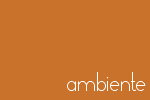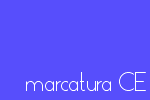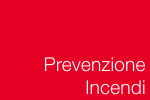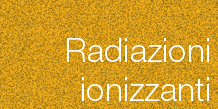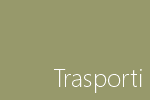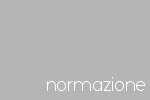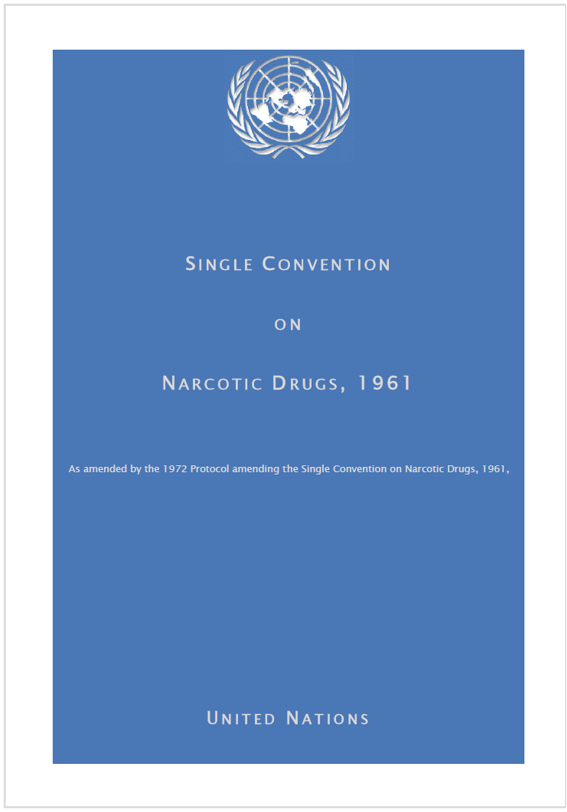Single Convention on Narcotic Drugs / 1961
ID 21638 | New York, 30 March 1961 as amended by the 1972
Single Convention on Narcotic Drugs of 1961 as amended by the 1972 protocol amending the Single Convention on Narcotic Drugs 1961.
The Single Convention on Narcotic Drugs, 1961 (Single Convention, 1961 Convention, or C61) is an international treaty that controls activities (cultivation, production, supply, trade, transport) of specific narcotic drugs and lays down a system of regulations (licenses, measures for treatment, research, etc.) for their medical and scientific uses; it also establishes the International Narcotics Control Board.
The Single Convention was adopted in 1961 and amended in 1972. As of 2022, the Single Convention as amended has been ratified by 186 countries. The convention has since been supplemented by the 1971 Convention on Psychotropic Substances, which controls LSD, MDMA, and other psychoactive pharmaceuticals, and the 1988 United Nations Convention Against Illicit Traffic in Narcotic Drugs and Psychotropic Substances.
The Single Convention on Narcotic Drugs is an international treaty to prohibit production and supply of specific (nominally narcotic) drugs and of drugs with similar effects except under licence for specific purposes, such as medical treatment and research.
Earlier treaties had only controlled opium, coca, and derivatives such as morphine, heroin and cocaine. The Single Convention, adopted in 1961, consolidated those treaties and broadened their scope to include cannabis and drugs whose effects are similar to those of the drugs specified. The Commission on Narcotic Drugs and the World Health Organization were empowered to add, remove, and transfer drugs among the treaty's four Schedules of controlled substances. The International Narcotics Control Board was put in charge of administering controls on drug production, international trade, and dispensation. The United Nations Office on Drugs and Crime (UNODC) was delegated the Board's day-to-day work of monitoring the situation in each country and working with national authorities to ensure compliance with the Single Convention. This treaty has since been supplemented by the Convention on Psychotropic Substances, which controls LSD, Ecstasy, and other psychoactive pharmaceuticals, and the United Nations Convention Against Illicit Traffic in Narcotic Drugs and Psychotropic Substances, which strengthens provisions against money laundering and other drug-related offenses.
The Single Convention repeatedly affirms the importance of medical use of controlled substances. The Preamble notes that "the medical use of narcotic drugs continues to be indispensable for the relief of pain and suffering and that adequate provision must be made to ensure the availability of narcotic drugs for such purposes". Articles 1, 2, 4, 9, 12, 19, and 49 contain provisions relating to "medical and scientific" use of controlled substances. In almost all cases, parties are permitted to allow dispensation and use of controlled substances under a prescription, subject to record-keeping requirements and other restrictions.
The Single Convention unambiguously condemns drug addiction, however, stating that "addiction to narcotic drugs constitutes a serious evil for the individual and is fraught with social and economic danger to mankind". It takes a prohibitionist approach to the problem of drug addiction, attempting to stop all non-medical, non-scientific use of narcotic drugs. Article 4 requires nations to limit use and possession of drugs to medicinal and scientific purposes. Article 49 allows countries to phase out coca leaf chewing, opium smoking, and other traditional drug uses gradually, but provides that "the use of cannabis for other than medical and scientific purposes must be discontinued as soon as possible."
The discontinuation of these prohibited uses is intended to be achieved by cutting off supply. Rather than calling on nations to prosecute drug users, the treaty focuses on traffickers and producers. As of March 2005, 116 drugs were controlled under the Single Convention.
Collegati




